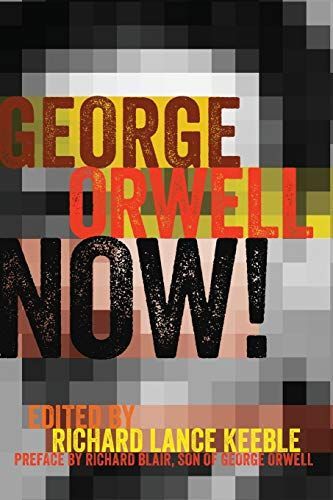
George Orwell Now!
George Orwell remains an iconic figure today - even though he died in 1950. His dystopian novel "Nineteen Eighty-Four" depicts a Big Brother society in which the state intrudes into the most intimate details of people's lives - and, not surprisingly, it became a constant reference point after Edward Snowden's revelations. The word Orwellian is constantly in the media - used either as a pejorative adjective to evoke totalitarian terror or as a complimentary adjective to mean displaying outspoken intellectual honesty. Interest in Orwell's life and writings - globally - continues unabated. Beginning with a Preface by "Richard Blair," Orwell's son, "George Orwell Now!" brings together thirteen chapters by leading international scholars in four thematic sections: - Peter Marks on Orwell and the history of surveillance studies; Florian Zollmann on "Nineteen Eighty-Four" in 2014; Henk Vynckier on Orwell's collecting project; and Adam Stock on 'Big Brother's Literary Offspring' - Paul Anderson In Defence of Bernard Crick; Luke Seaber on the London Section of "Down and Out in Paris and London"; John Newsinger on Orwell's Socialism; and Philip Bounds on Orwell and the Anti-Austerity Left in Britain - Marina Remy on the Writing of Otherness in "Burmese Days" and "Keep the Aspidistra Flying"'; Sreya Mallika Datta and Utsa Mukherjee on Reassessing Ambivalence in Orwell's Burma; and Shu-chu Wei on Orwell's "Animal Farm" alongside Chen Jo-his's "Mayor Yin" - Tim Crook on Orwell and the Radio Imagination; and editor Richard Lance Keeble on Orwell and the War Reporter's Imagination "Peter Stansky," in an Afterword, argues that Orwell is now more relevant than ever before.